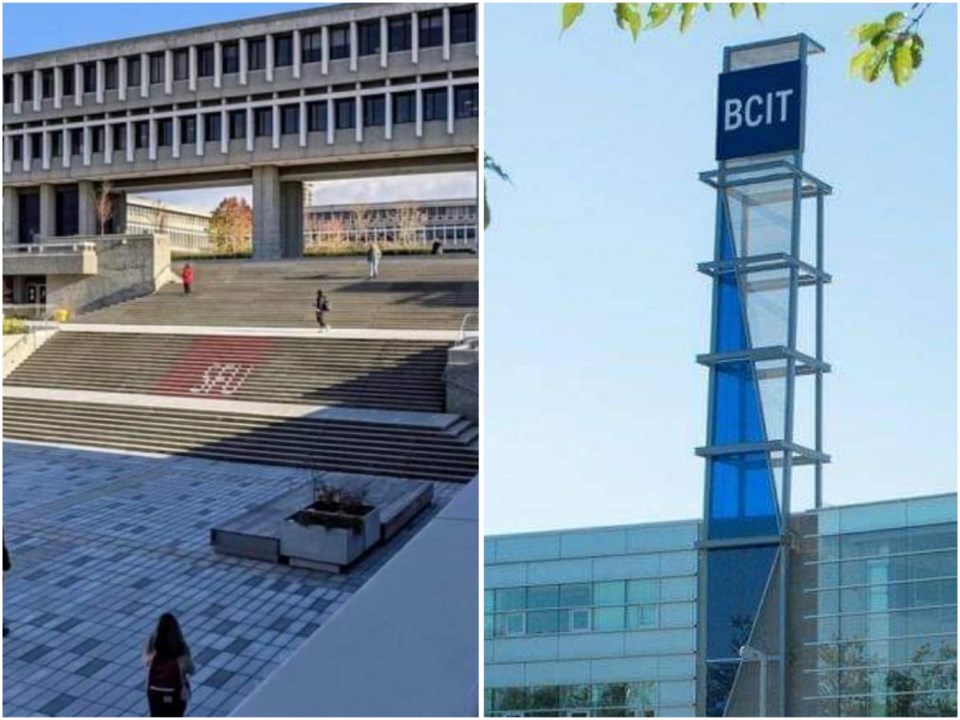A pair of Burnaby post-secondaries have been granted more research funding for three projects.
This includes one that involves a new telescope for in-depth space analysis and one that aims to enhance wheelchair capabilities "to help people move better and faster."
Simon Fraser University (SFU) and BCIT earned a combined $2.5 million from the BC. government's latest round of funding, which totalled $52.3 million for 25 research projects at five post-secondary schools.
The money is coming out of the B.C. Knowledge Development Fund (BCKDF), which aims to improve B.C.’s productivity and competitiveness among economies.
SFU
Simon Fraser students, thanks to $1 million, are set to install a new neutrino telescope off the coast of Vancouver Island.
Known as the Pacific Ocean Neutrino Experiment Demonstrator, the hope is the machine will reveal insights about the brightest corners of the universe and possibly discover "unknown astronomical phenomena."
The telescope will be set up at Ocean Networks Canada, a provincial news release explained.
"Simon Fraser University is delighted with BCKDF funding support for the Pacific Ocean Neutrino Experiment," said SFU spokesperson Dugan O'Neil.
"This project will leverage research excellence at SFU to expand the foundations of knowledge and advance our understanding of the universe."
As well, SFU received $490,000 for its part in a multi-jurisdictional project that focuses on EMPOWER — Ecocosms and Mesocosms Jointly Predict Ocean Weather and Ecological Response.
BCIT
Meanwhile, BCIT was injected with $1.011 million in provincial funding to continue its work on advancing wheelchair technologies.
The purpose of assessing advanced mobility devices is to find new ways to conquer "serious drawbacks" and "improve the lives of people with disabilities," BCIT explained in an earlier statement.
Led by Dr. Jaimie Borisoff, the team is set to develop new hybrid-manual wheelchairs with expanded features that allow users to navigate more difficult places like off-road trails and snowy terrain.
Capabilities explored consist of robotic skills for stair-climbing and power assist units similar to ebikes.
"Investment from the governments of Canada and British Columbia enable BCIT students, researchers and faculty to continue to push boundaries and advance applied research in their respective industries," said Jeff Zabudsky, BCIT president.
"Jaimie Borisoff, Barry Pointon and their colleagues embody the BCIT vision of empowering people, shaping B.C. and inspiring global progress."
B.C.'s contribution also comes nearly a month after the federal government handed over more than $1 million towards the wheelchair project, which is a partnership with MAKE+ and the University of Manitoba.



